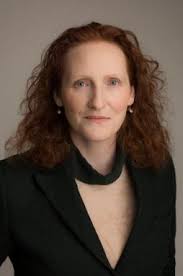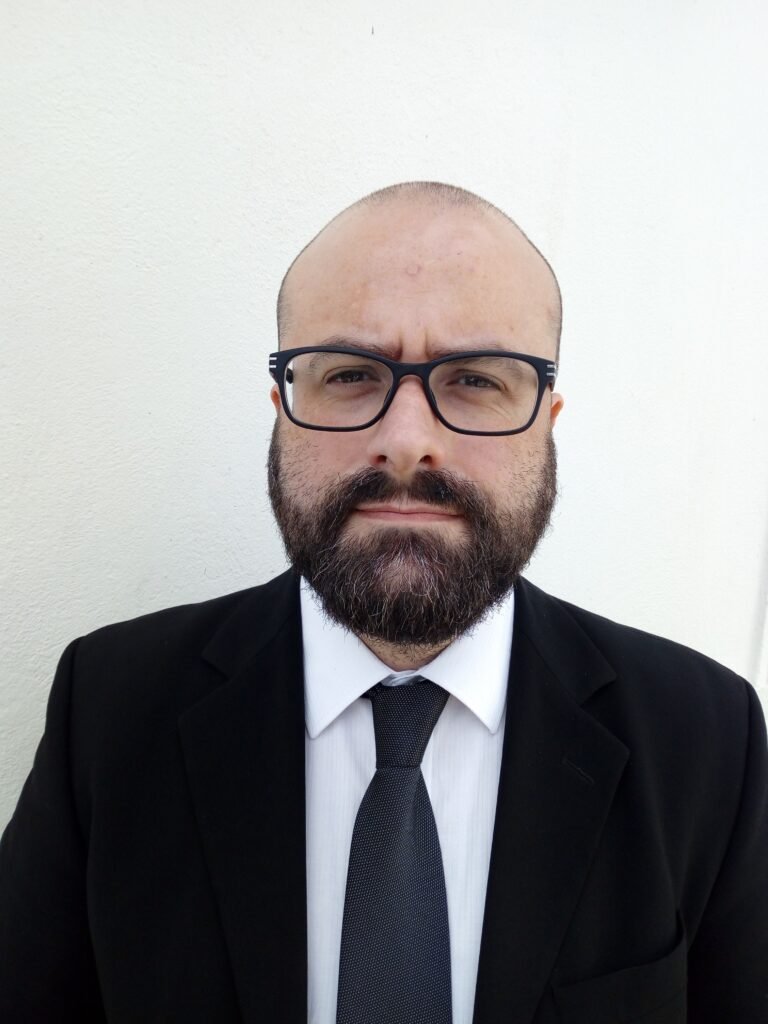The Covid-19 pandemic has posed many ethical questions. David Lynch examines how deficits in Ireland’s bioethical infrastructure may have affected its response to these issues
There have been a series of varied and evolving ethical dilemmas posed by the current pandemic. From the allocation of scarce resources at the beginning of the crisis to more recent decisions around vaccination roll-out, ethical questions have loomed large over the public health response to Covid-19. This has taken place at a time when Ireland’s bioethical infrastructure has been far from robust, according to some experts.
An upcoming Royal Irish Academy (RIA) symposium will focus on “the need for a more sustained bioethics structure in the Irish context”, to tackle both the pandemic and other emerging ethical issues in medicine (see panel). In January, Dr Siobhán O’Sullivan, the Chief Bioethics Officer at the Department of Health and a member of the national public health emergency team (NPHET), released a statement on vaccination roll-out.

Focusing on the plan from a bioethical perspective, Dr O’Sullivan noted that “solidarity has been – and must remain – the hallmark of the Irish response to Covid-19…. Those who have been prioritised for vaccination are the most likely to die, or those who have shouldered the heaviest burden in the pandemic so far.”
This was possibly the first ever Department of Health press statement to quote German philosopher Jurgen Habermas (who described solidarity as “the other side of justice”), a sign of how bioethics often engages with areas outside the narrow biological sciences. Reflecting on the story of bioethics and Covid-19 to date, Dr O’Sullivan told the Medical Independent (MI) that much has been made of the need to “follow the science” during this pandemic.
“While that is undoubtedly true – evidence must be at the core of our efforts to contain Covid-19 – it is important to recognise that values and principles, as well as science, underpin decision-making,” she said. “Bioethical considerations have informed decision-making from the outset of the pandemic.”
As an example, Dr O’Sullivan noted that her Department published an Ethical framework for decision-making in a pandemic in the early weeks of the crisis in March 2020. She added that “in contrast to many other countries”, ethics expertise was incorporated into NPHET “from the outset”.
“This allowed for the integration of ethical considerations as part of a multi-disciplinary dialogue, ensuring that relevant questions of value were raised when looking at the implications of the evidence.” What have been the most challenging ethical issues NPHET has considered during the pandemic so far? In response, Dr O’Sullivan said Covid-19 had raised “a myriad of ethical issues”.
She referred to the allocation of scare resources such as access to critical care and vaccines; ethical issues associated with research; ethical considerations related to the duty of care of healthcare workers and how far that extends; the rights of persons living in long-term residential care settings; contact tracing apps; as well as balancing individual liberties with the need to protect public health. The Chief Bioethics Officer said the nature of the ethical issues had changed since the first half of 2020.
“In the beginning of the pandemic, the biggest challenge was making difficult decisions under time pressure despite incomplete and uncertain information,” she told MI.
“That requires that special attention be paid to the principle of proportionality so that a reasonable balance can be struck which maximises the public good while minimising negative consequences.”
In more recent months the issue of vaccines has come to the fore, which has obvious bioethical dimensions.
“A challenge has been allocation of limited supplies of vaccines amongst many groups in society with legitimate claims to priority access,” said Dr O’Sullivan.
“The recommendations of the national immunisation advisory committee have been underpinned by an ethical framework which recognises the moral equality of every individual and places equity and fairness at the core of allocation decisions.
“This recognises that special consideration needs to be given to those who bear a disproportionate burden, be it because of a higher risk of a poor outcome if they get Covid-19 or because of other factors including socio-economic factors which may place a person at a higher risk of contracting the virus.”
In the early weeks of the Covid-19 crisis, a pandemic ethics advisory group (PEAG) was established to assist NPHET in its work. However, it was stood down in June 2020 “having fulfilled its terms of reference”, according to a Department of Health spokesperson.
“Since being stood down, work associated with the PEAG has been realigned into the appropriate policy and operational functions of the Department.” Dr Oliver Feeney (PhD) is Researcher at the Centre of Bioethical Research and Analysis, NUI Galway. He is also Chair of the organising committee for the upcoming RIA bioethics conference.

He told MI the scale of the pandemic necessitated exceptional responses from the Government and medical establishments “that were unavoidably ethical in nature”. He cited examples such as balancing individual freedoms with public health restrictions and rationing of healthcare both to Covid-19 and to non-Covid-19 patients.
“To this end, Ireland was strongly guided by the NPHET, which itself was advised on such ethical matters by the PEAG,” said Dr Feeney.
On the performance of PEAG during its short existence, Dr Feeney said that to “a great degree” its work represented “a robust bioethical response to the pandemic”.
“The membership showed a strong multidisciplinary profile of ethical and legal expertise combined with experienced patient advocates,” he told MI.
“Over the course of a few weeks, it published five ethical guidance documents – procedural values and an ethical framework for decision-making in a pandemic, as well as more specific ethical considerations for long-term residential care facilities, critical care and in the use of PPE [personal protective equipment] by healthcare workers.
“Given the continued inactivity of the national advisory committee on bioethics (NACB), this has been the most prolific national bioethical group that Ireland has had since 2015 at least.”
However, Dr Feeney said the positive contribution of PEAG in fact highlights “the relative failure in not having a robust functioning bioethics committee, or equivalent, in the first place and highlights the importance of such a committee”.
He noted as the pandemic emerged, PEAG “was hastily formed in both composition and procedures”, with some questions raised over its level of representation, transparency, and lack of consultancy with some vulnerable groups.
“In my opinion, the PEAG did an excellent job within the constraints of the need to move quickly in the face of a pandemic,” said Dr Feeney. “Criticisms may be justified, but this should not take away from the admirable work of its members.”
However, while PEAG did good work, Dr Feeney believes deeper questions remain regarding the infrastructure of bioethics in the State. “Criticisms can be directed towards the fact that it was necessary to hastily create such a group [PEAG] in the first place. If such a group was part of a pre-existing national bioethics committee, then such criticisms might not have applied.”
Dr Feeney described as “worrying” the disbandment of PEAG a few months into the pandemic. He said its demise took place in advance of several “pressing issues” including ongoing tensions between freedoms and restrictions, fatigue of healthcare professionals, and anti-vaccine sentiments within sections of the public.
He said some work had been done in this area by the RIA’s life and medical sciences committee (of which he is a member), and with the upcoming RIA conference and the Vaccine Questions Podcast hosted by Mr Dick Ahlstrom.
“Importantly [these] initiatives are free, online and open to all. But neither are such initiatives even remotely sufficient.”
As previously reported by MI, this apparent vacuum in bioethical organisation in Ireland is longstanding.
The Irish Council for Bioethics (ICB) was established in 2002 as an independent body to consider ethical issues resulting from rapid developments in medicine. However, following eight years of work, it was closed in October 2010 when funding ceased during the economic crisis. Dr O’Sullivan was Managing Director of the ICB prior to her current role at the Department.
In 2012, the NACB was established with a narrower terms of reference, tasked with providing advice to the Minister for Health on the ethical and social implications of scientific developments. In this regard, it produced a number of advice documents.
In 2018 the current Chair of the NACB, Prof Andrew Green, Clinical Geneticist, Children’s Health Ireland at Crumlin, told MI that the NACB had “contributed significantly to bioethical debate in Ireland”. He added that the committee was ready to resume its work once the Minister for Health asked it to consider a new topic.
However, the NACB has not met since September 2015. Asked this month for an update, a Department spokesperson
told MI “no decision has been made regarding the future work programme” for the NACB. The Department has its own internal bioethics unit, which has eight staff members. Although the pandemic has taken up some of the unit’s focus, the spokesperson said it is still involved in non-Covid-related work including areas such as “assisted human reproduction, termination of pregnancy, and advanced healthcare directives”.
In 2018 a number of experts told this newspaper they were concerned that there had been no replacement of the ICB since its dissolution in 2010. However, Prof Des O’Neill, Professor of Medical Gerontology at Trinity College Dublin, emphasised the importance of education rather than structures. “I think it is more important that the medical schools and postgraduate colleges work together to develop a nexus of research and CPD/formal postgraduate education such as the RCSI Masters in Ethics and Law, rather than another Irish Council for Bioethics,” he told MI in 2018.
This is a theme he returned to in a letter to the BMJ last summer, entitled ‘Covid-19: clinicians need continuing professional development in ethics’. Prof O’Neill wrote that calls for an “ethical road map” during the pandemic were timely but a “ missing element in the proposals was that of ongoing continuing professional development/medical education (CPD/CME) in clinical ethics among doctors and other healthcare professionals”.
What might have transpired differently if a national bioethics forum had existed before the extraordinary events of 2020? Dr Feeney argued that a pre-existing national bioethics committee would have been developing ethical frameworks before the crisis.
Therefore, it would likely have had “more robust and well-grounded versions” ready for the Covid-19 responses “with a potentially wider, transparently selected membership, well-known decision-making procedures, and with a greater collective experience as we entered the need for timely ethical responses to the pandemic”.
“Another area that a normally functioning national bioethics committee, along the lines of the original Irish Council for Bioethics, would have been stronger on in the last year is in the important area of public engagement or public deliberation.
“This would have been a ‘virtual’ experience, but it would have engaged more widely as a consequence – and reaching out to the various groups who may have been distrustful of lockdowns, mask-wearing, vaccines, to name a few – in order to discuss, explain, defend, persuade and to listen.”
Bioethical lessons from the pandemic
The impact of the Covid-19 pandemic on bioethics in Ireland can still be assessed, even as the pandemic continues.
“In terms of lessons learned from a bioethical perspective, the emphasis on solidarity and equity which has been a feature of this pandemic is welcome and needs to inform other debates in the healthcare arena,”
Dr Siobhán O’Sullivan, the Department of Health’s Chief Bioethics Officer, told the Medical Independent. She contrasted this emphasis on solidarity with a “simple utilitarian calculus on maximising benefit”.
“Covid-19 has exposed, as well as exacerbated, pre-existing health and social inequities, with a disproportionate burden falling on vulnerable and disadvantaged populations,” she added. Dr O’Sullivan said the “bioethics community has a vital role to play” in feeding into Irish public policy debates in health “but also economic and social matters, so that issues of social justice, human vulnerability, and structural inequalities” can be addressed.
Dr Oliver Feeney (PhD), Researcher at the Centre of Bioethical Research and Analysis, NUI Galway, considers part of the lesson for Irish bioethics is the need for structures. Due to the significant developments in biotechnology and medicine in recent years, “there is an urgent need to rebuild a new national forum so that Ireland can properly engage with important bioethical issues.”
These issues go beyond the pandemic and include new legislation on assisted human reproduction, embryonic research, genome editing, “as well as the growth of a largely commercial approach to whole genome sequencing in the Irish context”.
Issues of trust in science and medicine are also coming to the fore regarding vaccine hesitancy and the influence of social media on such matters, he said.
“At this point, I am interested in this discussion progressing to a concerted, wider effort to steadily persuade those in Government circles of the merits, critical need, and the benefits of re-establishing a new national bioethics forum,” he said. Dr Feeney said this could take the form of a council, committee, or other forum.
He stressed that it should be “sustainable, securely funded, independent, transparent, multidisciplinary and diverse in its membership” with functions in advising Government policy in areas of bioethical concern. It also needed to engage the public, he said, adding that recent experiences of the citizen assemblies could provide some guidance in this area.
Facilitating a sustained bioethics discussion
The RIA Life and Medical Sciences Symposium on the need for a sustainable framework for deliberating on bioethical responses will take place virtually on Thursday 15 April. Speakers include Dr Siobhan O’Sullivan, Chief Bioethics Officer, Department of Health; Dr Gabriel Scally, President, Epidemiology and Public Health section, Royal Society of Medicine; and Prof Deirdre Madden, MRIA Professor of Law, University College Cork and Deputy Chair, HSE board.
“The event is important for a number of reasons – particularly highlighting the need for a sustained bioethics forum in order to properly discuss the very significant bioethical issues that the event will itself be discussing,” Dr Oliver Feeney, Chair of the organising committee told the Medical Independent.
“By reflecting on the questions of ‘what is ethical’ within these topics, the panels can start to address the broader issue of ‘how do we discuss and manage such ethical disagreements’ – a crucial step toward public deliberation rather than heated polemical argument.”
Dr Feeney said that “given the ongoing and emerging international developments in biotechnology, in Irish and international regulation, as well as socio-political developments such as trust in science, in addition to the absence of a national bioethics public forum, this event is highly relevant.”
*The event is free to attend on online, but booking is essential. For more information, visit
www.ria.ie/role-irish-bioethics-rebuilding-trust-and-reasonable-discourse-medicine-science-and-technology













Leave a Reply
You must be logged in to post a comment.